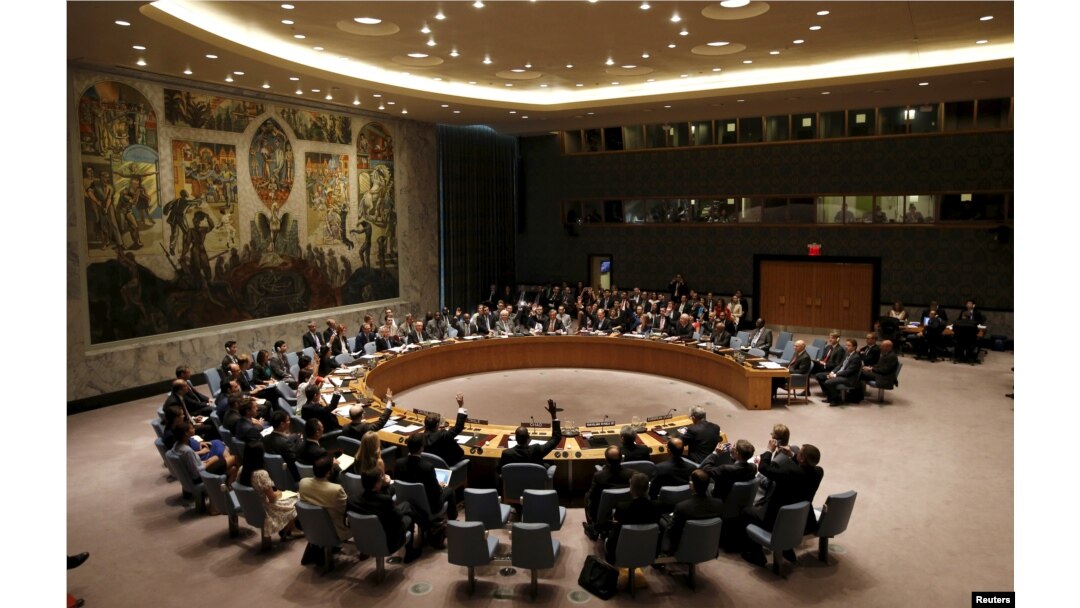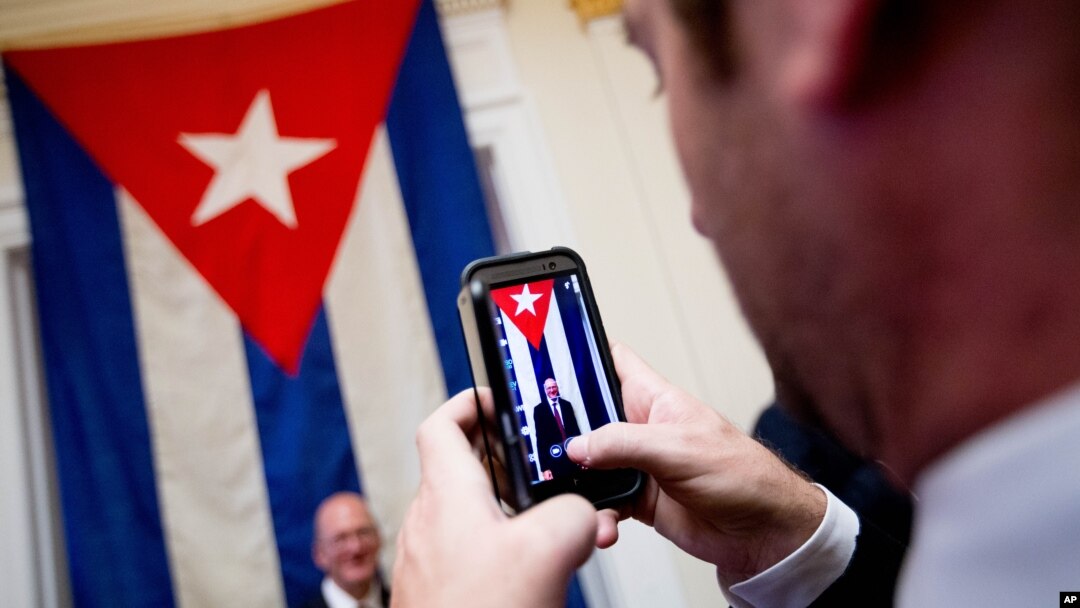A momentous day in U.S. diplomacy is being lauded and condemned by American lawmakers, as Washington and Havana reopened embassies and the United Nations gave its blessing to a landmark nuclear accord with Iran.
Democratic Senator Richard Durbin tweeted: “Opening our embassy in Havana will begin to open #Cuba to the value of our democracy … The power of ideas and the force of an open economy and an open society will succeed [in] #Cuba.”
Republican Cuban-American Senator Marco Rubio saw nothing to celebrate.
“History will remember July 20, 2015 as Obama’s Capitulation Monday, the day two sworn enemies of the United States were able to out-maneuver President Obama to secure historic concessions,” Rubio said in a statement. “Monday’s events at the UN, Washington and Havana leave no doubt that we have entered the most dangerous phase of the Obama presidency in which the president is flat-out abandoning America’s vital national security interests to cozy up to the world’s most reprehensible regimes.”
“July 20th will be a powerfully symbolic day for the Obama-Clinton foreign policy legacy, which will be remembered as a dark time in American history when the mullahs in Iran and the thugs in Havana celebrated at America’s expense,” Rubio added.

The United Nations Security Council votes to approve a resolution at the U.N. headquarters in New York, July 20, 2015.
Fellow-Republican Senator and 2016 presidential contender Lindsey Graham focused his comments on the accord with Iran.
“The Iranian deal may be good enough for the United Nations but it's a terrible deal for the United States,” said Graham in a statement. “Taking it to the UN before Congress reviews it is an affront to the American people and further evidence of a weak president trying to sell a bad deal. Congress is not bound by today’s UN decision. I look forward to a full and complete debate in the coming weeks.”
Separately, a bipartisan group of 60 former Cabinet secretaries, national security advisors, military leaders, ambassadors and other senior national security leaders welcomed the Iran deal as “a landmark agreement unprecedented in its importance for preventing the acquisition of nuclear weapons by Iran.
The group, which includes former secretary of state Madeleine Albright and former secretary of defense William Perry urged “members of Congress to be closely involved in the oversight, monitoring and enforcement of this agreement.”
A woman waves a U.S flag in front of the U.S. Interests Section, in Havana, July 20, 2015.
Congressional backers of President Barack Obama’s diplomatic efforts were mostly silent initially on the U.N. vote, but not so on the official restoration of diplomatic ties between the United States and Cuba.
“This evolution in our relationship with 11 million people 90 miles off of our shore was long overdue,” said Democratic Senator Amy Klobuchar. “It is now time to not only open our own fully equipped and staffed embassy in Havana, but to lift the [U.S.] trade embargo [of Cuba] once and for all.”
Another Democrat, Senator Patrick Leahy, echoed the sentiment. “We will now have our best diplomats in Havana representing the American people,” Leahy said.
“If we only had embassies in countries whose governments we agree with we would have to close half of our current embassies. That is not why you have embassies. It is to protect the interests of the United States and of American citizens and to defend our ideals around the world,” said Leahy.
Reaction did not fall strictly along partisan lines. Republican Senator Jeff Flake welcomed closer U.S. ties with Havana. “Cuban flag is raised over Cuban Embassy. Good day for Cubans and Americans,” Flake tweeted.


